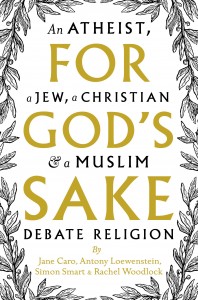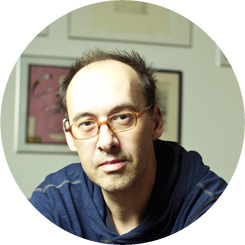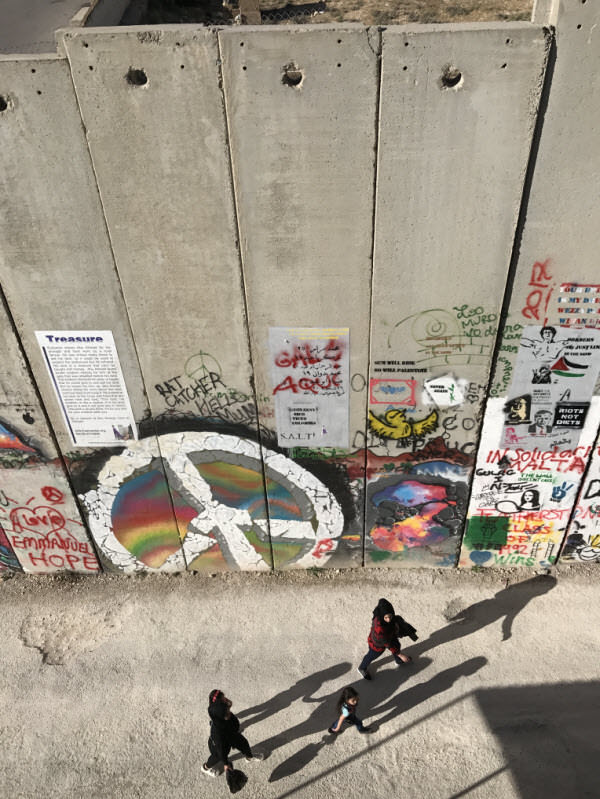For the two million Palestinians living under siege in Gaza, every week presents new challenges. Electricity is now reduced to about four hours a day due to political infighting between Palestinian parties Fatah and Hamas. Israel refuses to allow imports of the spare parts needed to fix the power plant that it bombed in 2012 and 2014, so the population suffers during the freezing winter and sweltering summer. Safe drinking water is often out of reach.
Unemployment is soaring, domestic violence against women is rising and freedom of movement, through Egypt or Israel, is restricted. During a recent visit, Gazans told me that they had never been more isolated from neighbouring states and the world.
The 50th anniversary of the 1967 Arab-Israeli War will be celebrated in Israel and is another signal that the occupation that began soon after this military victory is a permanent one. Nearly US$3 million (Dh11 million) has been allocated by Israel to celebrate this year’s anniversary and events will take place in illegal Jewish settlements in the West Bank.
The 1967 war was the third between the Arab states and Israel. Tensions built throughout the 1960s, and after Egyptian president Gamal Abdel Nasser ordered United Nations forces out of the Sinai and reoccupied it, and closed the Straits of Tiran to Israeli shipping, the path to war was set. On June 5, 1967, Israel launched surprise attacks and within six days seized the Sinai Peninsula and Gaza Strip from Egypt, the West Bank and East Jerusalem from Jordan, and the Golan Heights from Syria. Today, the most visible and painful legacy of the war has been the fate of the Palestinians. Newly released documents show that Israel knew the international community would not formally approve, and instructed diplomats not to talk of annexation in East Jerusalem but of “municipal fusion”. Other previously-secret files reveal the arrogance and euphoria after the 1967 war. Prime minister Levi Eshkol advocated forcible transfer of Arabs under occupation and only a few voices worried about ruling over a population with few civil rights.
With the backing of the Israeli government and full support of Zionist politicians such as Shimon Peres – years later he framed himself as a peacemaker though he remained a western-friendly face of colonisation – Jewish, religious nationalists quickly established colonies, all illegal under international law. They justified them for Biblical and ideological reasons (claiming God gave Jews all the land of “Judea and Samaria”) and strategic considerations (the need to protect the Jewish state). Between 1967 and 1977, about 5,000 settlers moved principally into the Jordan Valley.
The United Nations estimates that Gaza could be unliveable by 2020 due to a decade of war and Israeli deprivation. Robert Piper, UN coordinator for humanitarian aid to the Palestinians, told the Jerusalem Post in April that the situation was so dire, half the population in Gaza was “food insecure”.
Unemployment is one of the highest rates in the world. Israel has controlled the lives of Palestinians for 50 years now, with no end in sight.
From 1977 until today, regardless of who ruled Israel, settlements became state religion. There are now about 700,000 settlers in the West Bank and East Jerusalem. Israel withdrew 8,000 settlers from Gaza in 2005 but maintains control of its land, sea and air borders.
Israel has instituted a discriminatory regime for Palestinians under occupation – hundreds of thousands have been imprisoned over the decades, with many killed (families are rarely given compensation when innocents are murdered), and settler violence against Arabs is both tolerated and encouraged by the Israeli army in the West Bank. Settlers live as if they are in the Wild West, stealing water and the best natural resources from the native population and often destroying their main source of income, olive groves.
In the city of Hebron, with 500 radical Jews and 200,000 Palestinians, Israel has segregated the communities, reminiscent of apartheid South Africa. American actor Richard Gere, who recently visited the town, remarked that, “it’s exactly what the Old South was in America. Blacks knew where they could go … You didn’t cross over if you didn’t want to get your head beat in, or you get lynched”.
The religious, nationalist movement has forced itself into all levels of the state and liberal Israelis have accepted this shift, migrated or become a tiny and ineffective opposition. It’s why the boycott, divestment and sanctions (BDS) movement, a Palestinian-led initiative that aims to economically isolate the Jewish state, has become so effective in the past decade in highlighting the undemocratic nature of Israel. BDS argues that change will only come from strong and consistent outside pressure.
Since the Oslo peace accords in the 1990s, an arrangement that established a complicit Palestinian Authority deputised to police the West Bank for the Israelis while colonies grew exponentially, the world has seen peace conferences and endless negotiations. Washington’s role has been akin to “Israel’s lawyer”. The European Union and Arab League have not been able to change anything. The Jewish, Israeli public have shifted far to the right, and racism against black Africans, Palestinians and minorities is surging.
Israel is only democratic if you’re Jewish. A just, two-state solution was dead on arrival because Israel had no intention of ending its addiction to settlements. A recent poll of Israeli Jews conducted by Fathom, a British journal on Israel, found that many thought the settlements were part of sovereign Israel (they’re not).
This year, after 50 years of occupation, Israel faces little, real opposition to its policies but the moral and economic cost has been massive. On the 40th anniversary of the occupation, in 2007, Israeli estimated the cost of the enterprise since 1967 at more than US$50 billion (Dh184 billion), including security and civilian expenses.
The effect has been dramatic. The rate of poverty in Israel is the highest in the developed world; a quarter of the population and nearly one-in-three children are poor. Israeli journalist Gideon Levy recently wrote in the Israeli newspaper Haaretz that, “a state that celebrates 50 years of occupation is a state whose sense of direction has been lost, its ability to distinguish good from evil impaired”.
A massive hunger strike by thousands of Palestinian prisoners, held illegally in Israeli prisons, began in April led by imprisoned leader Marwan Barghouti. It aimed to highlight their poor treatment by Israel and remind the world that 800,000 Palestinians – 40 per cent of males – have experienced Israeli prisons since 1967.
Around East Jerusalem and the West Bank, Palestinians live under constant risk of house demolitions, Israeli army invasions, road closures and lack of adequate services. Israeli society is constricting. Prominent left-wing, human rights organisations, such as Breaking the Silence and B’Tselem, are accused of treason by senior members of the Israeli government.
The situation on the ground feels hopeless. With the region in disarray, wars in Syria, Yemen and Afghanistan, terrorism by extremists and United States president Donald Trump’s unpredictability, justly resolving the Palestinian issue is not a likely priority. During Trump’s recent Middle East trip to Saudi Arabia and Israel, he mentioned nothing tangible about Palestinian rights.
If the two-state solution is impossible, what are the alternatives? The status quo is assured with occasional and inevitable Palestinian resistance.
A fair one-state solution would give all citizens of Israel and Palestine equal rights and a vote in parliament. This option is refused by the vast majority of Israeli Jews and the Jewish diaspora because they want to maintain Jewish privilege.
Rawabi in the West Bank, the first planned, modern Palestinian city at a cost of $1.4 billion, with financial help from the Gulf, is mooted as a ray of light. However, during a recent visit, I saw a ghost town of modern apartment buildings with few residents or services. Palestinian businessman Bashar Masri envisages a population of 40,000, and when I visited, I saw families receiving tours of the area. It is close to Jerusalem and Ramallah and about 3,000 Palestinians currently live there.
A shopping centre, amphitheatre, equestrian area, winery, church, mosque and bungee jumping are all part of the vision. However, Rawabi has been entangled for years with Israel over issues of access roads, the electricity grid and a reliable water supply.
The lasting legacy of the 1967 war and Israel’s colonisation project is a dark reminder of the international community’s acceptance of the Jewish state because of Holocaust guilt, racism against Arabs and a fear of upsetting a key US ally. The result is one of the longest occupations in modern times, with no serious internal or external pressure to change the status quo.
June 1967: six days that shook the world
The 1967 war was the third between the Arab states and Israel. The first took place in 1948. This war left the West Bank and East Jerusalem under Jordanian control, with the Egyptians in control of the Gaza Strip. The second, in 1956, resulted in Israel capturing the Gaza Strip and Sinai. But Israel was forced to give up the Sinai in 1957, when a UN force was deployed. Tensions remained high.
Israel in the 1960s was experiencing a recession while Arab nationalism surged across the region. The Egyptian leader Gamal Abdel Nasser generated huge support by talking about the “liberation” of Palestinian territory. Palestinian insurgent groups found support in Syria and Jordan, leading to Israeli military leaders urging a preemptive, Israeli strike.
Washington was consumed with the Vietnam War and refused to guarantee assistance, while Moscow was deeply concerned with Israel’s nuclear capabilities and urged an Arab attack.
In May 1967, Nasser ordered the UN force out of Sinai, signed a defence pact with Jordan and closed certain waters to Israeli shipping.
After much deliberation within the Israeli establishment, the Jewish state bombed the Egyptian Air Force on June 5, 1967, quickly destroying it. Egypt’s ground forces were neutralised days later. Victory was remarkably swift following considerable Arab military failures. In a mere 132 hours, Israel captured the Golan Heights from Syria, the West Bank and East Jerusalem from Jordan, and Gaza, along with the Sinai, from Egypt.
Israeli euphoria filled the country and voices against the occupation of Palestinian territory were minimal. Many Israeli leaders claimed the Arabs under their control would soon regard them as benign rulers. The decision to capture East Jerusalem was taken purely for emotional reasons, not strategic considerations, because of the strong Zionist desire to unify the city under Jewish dictate.
Antony Loewenstein is a Jerusalem- based journalist and author of Disaster Capitalism: Making a Killing Out of Catastrophe.

 Vulture capitalism has seen the corporation become more powerful than the state, and yet its work is often done by stealth, supported by political and media elites. The result is privatised wars and outsourced detention centres, mining companies pillaging precious land in developing countries and struggling nations invaded by NGOs and the corporate dollar.
Best-selling journalist Antony Loewenstein travels to Afghanistan, Pakistan, Haiti, Papua New Guinea and across Australia to witness the reality of this largely hidden world of privatised detention centres, outsourced aid, destructive resource wars and militarized private security. Who is involved and why? Can it be stopped? What are the alternatives in a globalised world?
Vulture capitalism has seen the corporation become more powerful than the state, and yet its work is often done by stealth, supported by political and media elites. The result is privatised wars and outsourced detention centres, mining companies pillaging precious land in developing countries and struggling nations invaded by NGOs and the corporate dollar.
Best-selling journalist Antony Loewenstein travels to Afghanistan, Pakistan, Haiti, Papua New Guinea and across Australia to witness the reality of this largely hidden world of privatised detention centres, outsourced aid, destructive resource wars and militarized private security. Who is involved and why? Can it be stopped? What are the alternatives in a globalised world? 

 The 2008 financial crisis opened the door for a bold, progressive social movement. But despite widespread revulsion at economic inequity and political opportunism, after the crash very little has changed.
Has the Left failed? What agenda should progressives pursue? And what alternatives do they dare to imagine?
The 2008 financial crisis opened the door for a bold, progressive social movement. But despite widespread revulsion at economic inequity and political opportunism, after the crash very little has changed.
Has the Left failed? What agenda should progressives pursue? And what alternatives do they dare to imagine?
 The Blogging Revolution, released by
The Blogging Revolution, released by  The best-selling book on the Israel/Palestine conflict,
The best-selling book on the Israel/Palestine conflict, 



